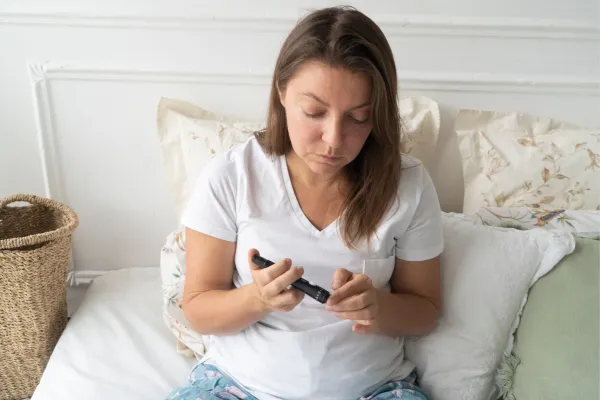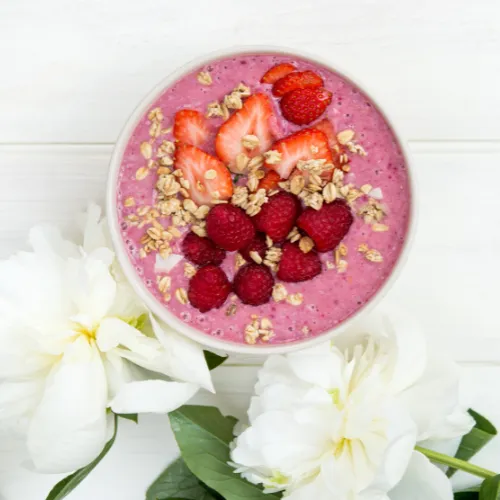
CONTACT

From The Blog
Some of my recent blogs full of information to help you live a healthier happier life

The Effects of Blood Sugar Levels During Menopause
In this article I write about blood sugar levels during and after menopause. As women get older, hormone changes before and during menopause often cause hot flashes, irritability and sleep deprivation. These drops or spikes in the hormones not only impact your mood and life, but they can also affect your bloods sugar. The hormones estrogen and progesterone affect how your cells respond to insulin. If you are noticing that your blood sugar levels are changing more often, you may be of risk of diabetics.
For women who have diabetes, you know from eating too much, missing out on a snack or even stress can affect your blood sugar, making it very difficult to control.
Blood sugar or blood glucose level, is the concentration of glucose found in the blood. Glucose is a simple carbohydrate, it comes from breads, grains, fruits, dairy products and some vegetables. It’s an important fuel for the body.
Estrogen and progesterone are essential for control of the menstrual cycle and reproduction. With menopause, the ovaries cease to make these hormones. Estrogen now comes from adrenal production and fat cells. The decrease in estrogen decreases the metabolic rate in which women use starches and carbs. This can contribute to weight gain women experience in menopause.
Premenopausal women often gain weight around the thighs and buttocks but during menopause women tend to gain weight around the abdominal area. This is known as visceral fat which can lead to Type 2 diabetics.
Type 2 diabetics is the most common type and is caused by the coexistence over time of two conditions; insulin resistance and chronic inflammation. This happens progressively in which the body needs to produce higher than normal amounts of insulin to clear glucose out of the blood after a meal or snack. Insulin resistance occurs over time. It begins at a low level, and eventually shows up as prediabetics, and if not addressed through diet and lifestyle, may progress to diabetics.
Sleep deprivation can also cause issues with blood sugar levels. Lack of sleep causes the body to produce more cortisol, which is a stress hormone. Cortisol provides the body with glucose by using the protein in the liver. Increased cortisol levels over a period of time can cause weight gain.
Research tells us that the risk of all these problems can be reduced or even avoided when healthy lifestyle changes are implemented early on.
Weight Loss
A low carbohydrate diet can help as it does not pump as much glucose into your body and helps with weight loss and regulate your blood sugar. It is important to note that dieting should be a primary focus only for health goals. Nothing replaces a nutrient-dense diet.
Exercise
It is important to stay active. Walking 30 minutes a day will help with losing weight and regulating blood sugar. When you exercise, your muscles will burn sugar in your body, helping to lower glucose levels. Exercising regularly will also help the body use insulin more efficiently.
Hydration
Drinking more water helps control blood sugar and helps kidneys get rid of the extra blood sugar through urine. Water rehydrates the blood. Don’t know how much water you should be drinking? The human body requires 33ml (millilitres) for each kilogram of body weight. Take your body weight and times it by 0.033 which will equal the amount of water you should be drinking. Example: 58 x 0.033 = 1.914 litres per day.
Stress Less
When you are stressed your body releases hormones such as cortisol, which increases insulin resistance. Controlling stress levels is important for many other health issues including blood sugar. Meditation, sleep and relaxation can also help control this.
Cinnamon
Another easy way to reduce blood sugar is to add cinnamon to your foods as it slows the breakdown of carbohydrates and increases insulin sensitivity. No more than 0.4 teaspoons a day.
Controlling blood sugar is imperative for health and wellness throughout our lives. It is important to regularly get tested for blood glucose every year to prevent the onset of diabetics.
MAKE MEAL PLANNING EASY ...
5 Day Meal Preparation Plan
A complete 5 day meal plan + recipes to show you how to plan and prepare all your food for a work week in just a few hours!
Shop once, cook once and eat clean for 5 days.

Customer Reviews
My clients gets results! Click here for more reviews...
My consultation with Emma was very insightful. I have Type 2 Diabetes and the guidance I received from Emma was excellent. She helped me prioritise the important aspects of diet and lifestyle. The food groups that will help me manage my glucose levels. She also helped me search for diabetes friendly recipes. I found Emma to be very kind and supportive. She is extremely knowledgeable and can guide you in your health and healing journey.
Sabarna Mukherjee

I recently attended a hydration event with Emma and it was super educational. I learnt so much! Emma really knows her stuff all things nutrition and health. I highly recommend Emma to anyone looking for help with meal planning and nutritional advice.
Erin Halcroft

Emma is a wonderful supportive person who cares for her clients. I lost 20 kilos and have so much more energy, I have never felt better. She is passionate to help women have long term health.
Tessa Jetson

Talking about health, weight and nutrition can feel a tad bit sensitive but not with Emma. Emma made me feel extremely comfortable during our consultation session. She listened to me and didn't make me feel intimated, shy or embarrassed. Pure genuine care and passion during our consultation. I highly recommend Emma to sort out your relationship with food. I am not getting any younger and having Emma to guide me to have a better relationship with food will prevent health problems as I get older was perfect timing.
Nicola Saunders











